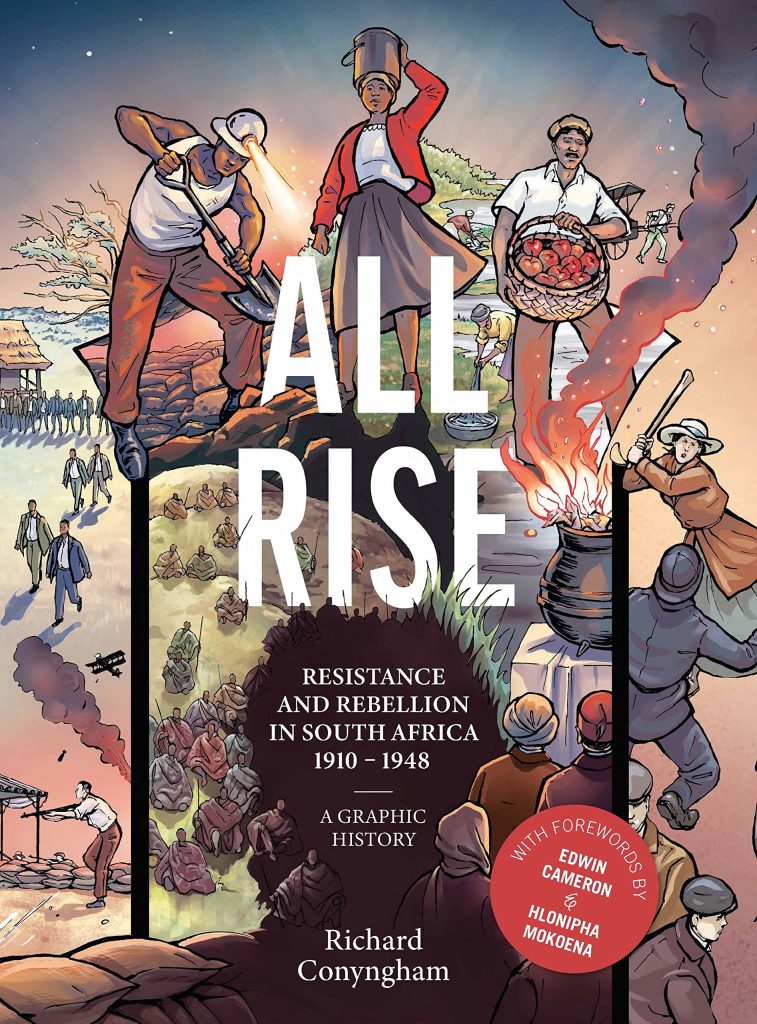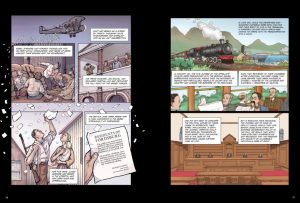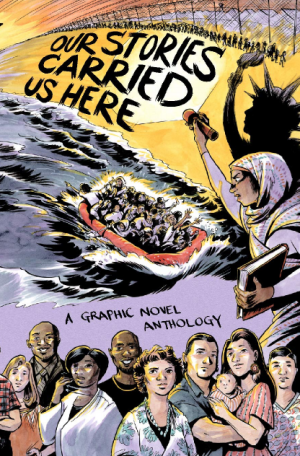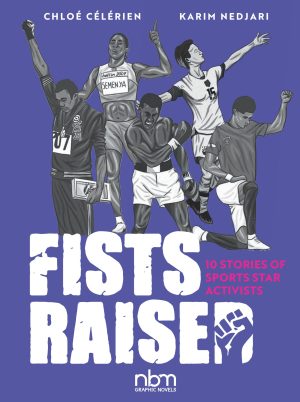Review by Frank Plowright
In the late 20th century South Africa became notorious for state-sponsored racism and persecution, but even before then it was hardly a paradise for the Black population. All Rise presents the results of Richard Conyngham’s research of government archives housed at the Superme Court of Appeal, which unearthed cases of heroism that should be better known. Six cases are adapted, each drawn by a different artist, and presented chronologically, followed by background notes and explanations.
As Conyngham’s sources are court documents every spotlight ended up before judges in some respect, and some reflect ongoing events in the 21st century. The opening story beginning in 1908 is the longest, involving Mohandas Ghandi’s time practising law in South Africa and attempts to deport workers solicited from India for refusing to carry identification documentation that only applied to them. Future Prime Minister Jan Smuts, then Interior Minister, devised a policy of deportation.
Another case recounts Helena Detody’s trial under the notorious pass laws, demanding any native African in a white area at night carry a permission slip, but Conyngham doesn’t restrict the content to racist persecution. Striking tram worker Jack Gallagher is framed, but his case leads to a legal precedent invaluable to later prisoners; Jack Long is charged with murder carried out during the bitter miners strike of 1922 and there’s a look at internal tribal conflict in Bafokeng and the life of a Black miner in the 1930s. Conynham uses the racist terms applied at the time, as to sanitise the language would be disrespectful to the victims.
Given the source material there’s a fair amount of courtroom drama, but All Rise also encompasses procedural mystery and more personal stories, and the art varies along with the tone. Liz Clarke is the most imaginative artist on perhaps the most harrowing story, playing with page design as seen on the sample art (left). The Trantraal Brothers, not individually credited, have a polished photographic style, and Saaid Rahbeeni copes well with the different moods and locations required for the opening story (sample right).
All Rise is frankly depressing reading, but important historical documentation in bringing stories to a wider audience. The courageous people spotlighted stood up for their entirely reasonable beliefs to be persecuted by their own country, and their trials deserve greater recognition than being forgotten in old court records. To a lesser extent it highlights how justice was long a secondary concern to political imperatives, with the system sometimes complicit. What’s here certainly highlights how it enriched the few at the cost of keeping millions in poverty.
It should also be noted that it’s not as if the problems have gone away. There are distinct parallels between the first case and the British Home Office’s disgusting treatment of Caribbean immigrants who’d lived and worked in the UK for decades, and were then deported for not having official paperwork. That process began in the 21st century.





